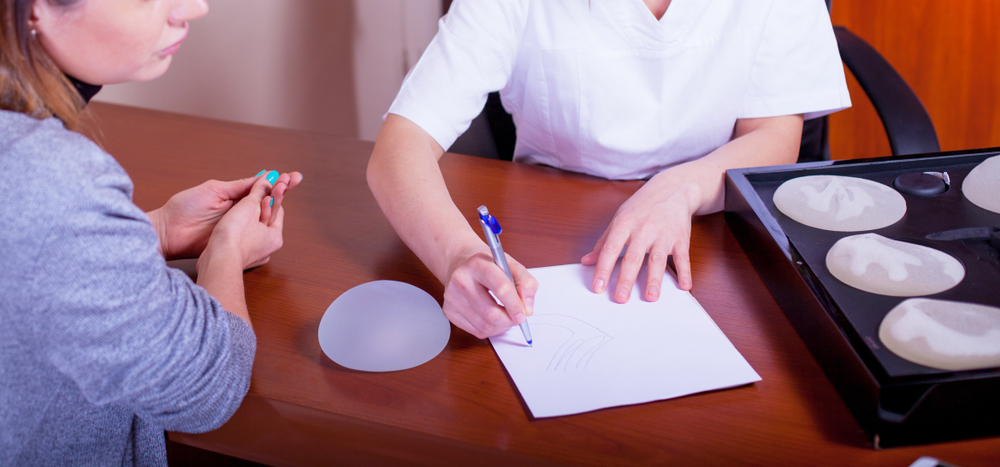Every year, millions of women undergo breast augmentation surgery. Most of these surgeries include installing breast implants – medical devices regulated by the U.S. Food and Drug Administration (FDA). Now, concerns about breast implant illness are causing many women to weigh the risks of implants and make difficult choices about their health and appearance.
In August 2019, we told you about the FDA recall of textured breast implants in our article “FDA Recalls Textured Breast Implants over Cancer Concerns.” At the time, the recall was new and information about breast implant illness was emerging. Now, there are more reports of breast implant illness and there is an even greater concern about the possibility of cancer due to implants.
What is Breast Implant Illness?
Breast implant illness is not a medically-recognized condition, but it is something that is gaining traction as researchers look into the link between breast implants and the symptoms women report. Women report experiencing a variety of symptoms, which are now collectively known as breast implant illness. These symptoms include:
- Chest pain
- Chills
- Depression
- Rash
- Headache
- Fatigue
- Memory loss
- Gastrointestinal problems
- Hair loss
- Sleep problems
Because breast implant illness is not classified as an official medical illness, there are no diagnostic criteria. Unfortunately, that makes it difficult for women to get answers and a clear diagnosis.
Doctors believe that the symptoms of breast implant illness are the result of the body’s inflammatory response to the implant, which is a foreign body. Consequently, as the body responds to the foreign body, inflammation occurs as if the body is fighting against it. The FDA reports that women who have symptoms of breast implant illness report resolution of the symptoms upon having the implants removed.
There is debate about whether breast implant illness is a real condition. Despite hundreds of women all reporting the same symptoms and what ultimately resolved them, many doctors refuse to link implants to illness. Researchers are calling for more intensive study into breast implants and the possible link to autoimmune disorders and cancer.
Do Breast Implants Cause Cancer?
Textured breast implants are linked to a greater risk of developing cancer. Breast implant-associated anaplastic large cell lymphoma (BIA-ALCL) is uncommon, but has already claimed the lives of at least 33 women. Furthermore, the FDA reports that hundreds of women receiving a diagnosis of BIA-ALCL – all of whom have breast implants.
BIA-ALCL is a cancer that develops in scar tissue around breast implants, called the capsule. It is most commonly linked to textured breast implants, which seem to increase the body’s inflammatory response. BIA-ALCL is an immune system cancer and is treatable with chemotherapy and radiation. Without adequate treatment, the cancer can spread to other parts of the body.
Women who have breast implants should be mindful of the symptoms of BIA-ALCL, and should contact their healthcare provider immediately. The most common symptoms include:
- Fluid accumulation around the implant (called a seroma)
- Breast pain and swelling
- Swollen lymph nodes
- Skin rashes
- Fatigue
- A lump or mass adjacent to an implant
Because BIA-ALCL is uncommon, doctors may not recognize the symptoms and risk. Women who have textured breast implants who are experiencing symptoms of breast implant illness or BIA-ALCL should meet with their healthcare provider as soon as possible. Healthcare providers should order an MRI or ultrasound to scan for a mass or fluid collection.
Discovery of either should result in aspiration or biopsy to test for BIA-ALCL markers. Healthcare providers should follow national cancer guidelines for testing.
Healthcare Providers Not Doing Enough to Diagnose BIA-ALCL
Since the initial Allergan textured breast implant recall in July 2019, thousands of stories have hit the media about women who are fighting for answers. Many women report their surgeons brushing off their symptoms or telling them that the pain and fatigue is “normal.” Many others report their surgeons diagnosing them with other disorders like psoriasis or even other cancers.
Women who are afraid of developing BIA-ALCL are also requesting implant removal, but some healthcare providers are reluctant to do so. One woman reports her doctor telling her that she would not be happy with how she will look after surgery. Other women report their surgeons telling them that certain symptoms were nothing to worry about.
A woman from San Francisco reports experiencing symptoms to BIA-ALCL. She was misdiagnosed with inflammatory breast cancer. She went through 18 rounds of chemotherapy and had a unilateral mastectomy. Once she completed treatment, her doctors discovered that she never had breast cancer. She had BIA-ALCL. By the time the correct diagnosis was made, the cancer had spread to other parts of the body.
These stories underscore the importance of appropriate testing and diagnostics. It also highlights some of the most tragic examples of medical malpractice related to misdiagnosis or failure to diagnose. Such stories certainly do nothing to help women feel confident about reaching out for medical help.
Women Face Difficult Decisions about Breast Implant Illness
So far, BIA-ALCL is only linked to textured breast implants. Textured breast implants are not as common as smooth implants in the United States, but are in use worldwide. Recent estimates suggest that there are more than four million textured breast implants currently in distribution worldwide. In July 2019, the FDA said,
“Continued distribution of Allergan’s BIOCELL textured breast implants would likely cause serious, adverse health consequences and potentially death from BIA-ALCL.”
Now, women are facing difficult decisions about keeping their implants or having them removed. Allergan is offering to help cover out-of-pocket costs of explantation surgery for women who have a BIA-ALCL diagnosis. The company is offering to cover up to $7,500. Similarly, women who have a late-onset seroma may be eligible for up to $1,000 in coverage for testing.
Allergan is also offering women the option of replacing their textured implants with smooth ones, with the company covering the cost of surgery. So far, it is unclear whether any women have opted to have their implants replaced. Advocates for the women affected by the textured implants believe that Allergan should be covering the cost of explantation surgery for all women who currently have the recalled implants.
Women Face Emotional Decisions
Of course, health and safety is the primary concern, but for women who have breast implants, there is also concern about their appearance. Removing the implants often results in significant changes to the breast tissue and appearance. Therefore, this is a personal, emotional and difficult decision for many women.
What’s more, many women who have breast implants get the surgery after undergoing a double mastectomy for breast cancer. Women attribute the decision to get implants to their desire to regain femininity. Unfortunately, textured breast implants may place these women at risk for developing a different type of cancer.
Questions to Ask Your Healthcare Provider
Women who have symptoms of breast implant illness, or who are considering explantation should ask their healthcare team the following:
- What type of breast implants do I have? Ask your surgeon for the name, model and manufacturer.
- Does the Allergan recall affect me? The FDA is not recommending that women without symptoms of breast implant illness or BIA-ALCL have their implants removed.
- What are signs and symptoms that I should watch for? Everyone is different so get a healthy baseline and find out what to watch out for.
- Should I have my implants exchanged? Talk to your doctor about your options. If you have textured implants and they are removed, you will also likely need a capsulectomy as well, which is more involved.
- Does insurance cover removal of textured breast implants? You and your healthcare team will need to explore whether your insurance will cover the cost of surgery. It may depend on your coverage, if you are experiencing side effects and if you have recalled implants.
Ultimately, you must make a decision based on what is best for your health. If you believe that your surgeon is not taking your concerns seriously, you should certainly get a second opinion. When it comes to breast implant illness and BIA-ALCL, knowledge is the key to preventing illness.
Guidance and Support for Women with BIA-ALCL
At Drug and Device Watch, we cannot help you make a decision about breast implants. We can, however, offer you the most up-to-date information about FDA recalls and safety alerts. We can also offer you guidance and support to protect your legal rights.
Numerous lawsuits have already been filed by women with a diagnosis of BIA-ALCL. If you have concerns or have a diagnosis, you also may be eligible to take legal action. The team at Drug and Device Watch can certainly help you determine if you have an actionable claim.
To find out more, call us toll free at 1-888-458-6825. You can also request more information or a free consultation by completing our online form.
Sources:
- https://www.buzzfeednews.com/article/skbaer/allergan-breast-implants-recall-women-diagnosis
- https://www.everydayhealth.com/breast-cancer/questions-to-ask-your-doctor-about-textured-breast-implants/
- https://www.medicalnewstoday.com/articles/326158.php#is-bii-real
- https://www.fda.gov/medical-devices/safety-communications/fda-requests-allergan-voluntarily-recall-natrelle-biocell-textured-breast-implants-and-tissue

